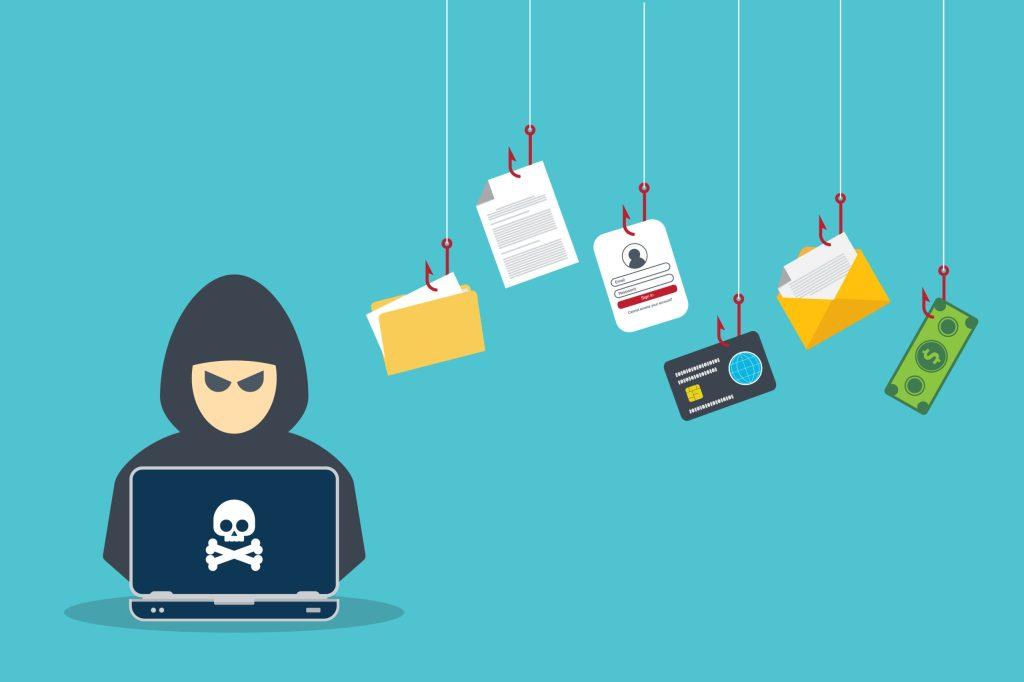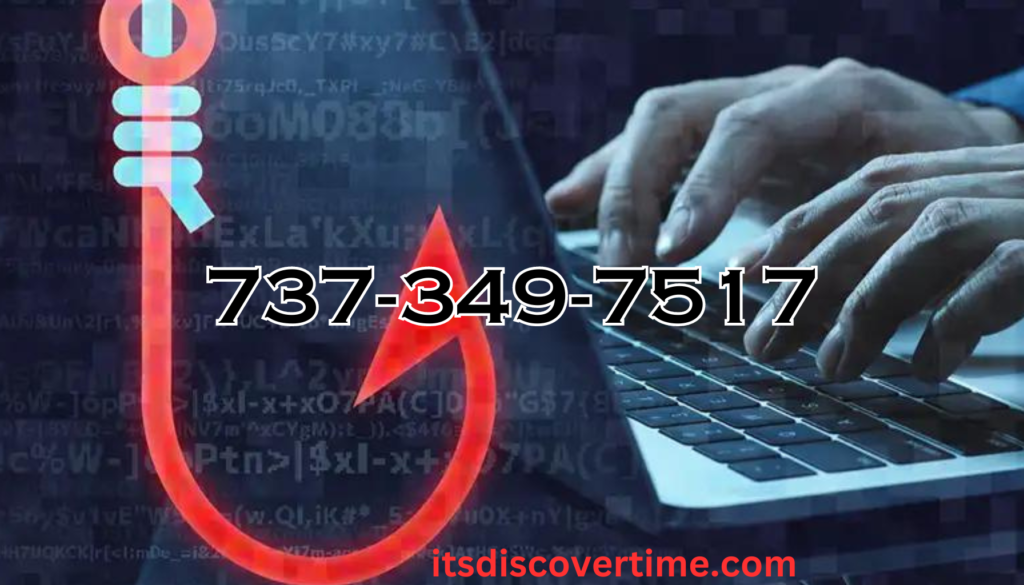Scammers are continually improving their techniques, making it essential for individuals to remain alert and informed. One phone number that has frequently been flagged as suspicious is 737-349-7517. This article delves into the nature of the scams linked to this number, the mechanisms behind these schemes, and the steps you can take to protect yourself. We will examine typical scam tactics, identify common warning signs, and offer practical advice on how to handle a call from this number.
Understanding the Significance of 737-349-7517
The phone number 737-349-7517 has been associated with various fraudulent activities. Reports from individuals who have received calls from this number indicate attempts to deceive them through multiple tactics. Scammers utilizing this number may impersonate legitimate organizations or fabricate emergencies to exploit their targets. Knowing these tactics can aid in avoiding such scams.

Tactics Used by Scammers with This Number
Scammers frequently employ advanced methods to conceal their true identity, making calls seem as though they originate from a reputable or local source. The number 737-349-7517 has been involved in several fraudulent scenarios, including:
Impersonation of Government Agencies
Scammers might pose as representatives from government agencies such as the IRS, Social Security Administration, or other official bodies. They may claim that you owe money or that your identity has been compromised, using fear tactics to pressure you into providing sensitive information or making payments.
Tech Support Fraud
Calls from 737-349-7517 may come from individuals pretending to be from well-known tech companies like Microsoft or Apple. They might assert that your computer has a virus and demand payment for unnecessary or non-existent services.
Phishing for Personal Information
Scammers may use this number to attempt to gather sensitive information such as Social Security numbers, bank account details, or credit card information. They often disguise these requests as routine verification processes.
Fake Prize or Lottery Notifications
Another tactic involves informing you that you have won a significant prize or lottery but require you to pay a fee or provide personal details to claim your winnings. These offers are typically fraudulent.
Why 737-349-7517 is Considered Risky
The risk associated with the number 737-349-7517 lies in its ability to deceive even cautious individuals. Scammers utilize a combination of urgency, fear, and persuasive tactics to manipulate their victims. They often target vulnerable groups, such as the elderly, who may be less aware of modern scam tactics and more susceptible to pressure.
Recognizing Scam Calls: Key Warning Signs
To protect yourself from becoming a scam victim, it is crucial to identify common warning signs of fraudulent calls. Watch for these red flags:
Unexpected Calls
Be cautious if you receive an unsolicited call from someone claiming to be from a government agency, tech company, or another official-sounding organization. Legitimate entities typically contact you through formal channels or by mail, not through unsolicited phone calls.
Urgent Threats
Scammers often create a sense of urgency, claiming that immediate action is needed to prevent severe consequences such as legal action or financial penalties. This tactic is designed to coerce you into making hasty decisions without verifying the caller’s legitimacy.
Unconventional Payment Methods
Be wary if the caller requests payment through unusual methods such as gift cards, wire transfers, or cryptocurrency. Legitimate organizations do not ask for payments through these channels.
Requests for Sensitive Information
Scammers frequently ask for sensitive personal information, including Social Security numbers, bank details, or passwords. Never provide such information over the phone to unsolicited callers.
Too-Good-to-Be-True Offers
If the caller promises something that seems unusually generous or beneficial, such as a large cash prize or a low-interest loan, it is likely a scam. Scammers use these offers to lure victims into their schemes.
Steps to Take if You Receive a Call from 737-349-7517
If you receive a call from 737-349-7517, take the following actions to protect yourself:
Avoid Answering or Hang Up Immediately
If you do not recognize the number, let the call go to voicemail. If you answer and determine it is a scam, hang up right away. Engaging with the caller can increase the risk of falling victim to the scam.
Do Not Share Personal Information
Do not provide any personal or financial information over the phone unless you are certain of the caller’s identity and the legitimacy of the call.
Report the Call
File a report with the Federal Trade Commission (FTC) or your country’s equivalent consumer protection agency. In the U.S., you can report the call to the FTC at reportfraud.ftc.gov.

Block the Number
Use your phone’s call-blocking feature to prevent future calls from the same number. This can help reduce the chances of receiving additional scam attempts.
Inform Others
Share your experience with friends, family, and on social media platforms to alert others about the scam. Raising awareness can help others avoid falling victim to similar schemes.
Strategies to Minimize the Risk of Future Scam Calls
While it is impossible to completely eliminate scam calls, you can take steps to lower your risk:
Use Call-Blocking Applications
Many apps are designed to identify and block scam calls before they reach you. These applications often use databases of known scam numbers and can be an effective tool in your defense.
Register with the National Do Not Call Registry
In the U.S., registering your phone number with the National Do Not Call Registry can help reduce the number of unsolicited calls you receive. Although this won’t stop all scam calls, it can significantly decrease their frequency.
Enable Caller ID Verification
Some phone carriers offer caller ID verification services to help confirm the legitimacy of incoming calls. These services authenticate the caller’s number before the call reaches you.
Be Cautious with Your Phone Number
Be selective about where you share your phone number. Avoid posting it on public websites or sharing it with businesses unless absolutely necessary.
Stay Informed and Educate Others
Keep yourself updated on the latest scam tactics and educate your loved ones, particularly older individuals, on how to recognize and avoid scams.
The Role of Authorities in Combatting Scammers
Government agencies and law enforcement play a crucial role in combating scammers and protecting consumers. Despite the challenges posed by the high volume of scam calls, authorities are actively working to address the issue:
Monitoring and Investigating Scams
Agencies such as the FTC track scam reports and investigate cases to identify and penalize scammers. Although not all scams can be prevented, these efforts help mitigate their impact.
Public Awareness Campaigns
Authorities conduct public awareness campaigns to educate people about common scams and preventive measures. These campaigns are essential in helping the public avoid falling victim to scams.
Collaboration with Phone Carriers
Government agencies work with phone carriers to develop technologies that can block or filter scam calls before they reach consumers.
International Cooperation
Given that many scams are orchestrated by international crime rings, collaboration between countries is necessary to tackle these threats. International cooperation is vital for tracking and prosecuting scammers who operate across borders.
The Future of Scam Prevention: Emerging Technologies
As technology evolves, new tools and methods for preventing scams are being developed. Innovations like artificial intelligence (AI) and machine learning are enhancing the ability to detect and block fraudulent calls before they reach consumers. AI algorithms can analyze patterns and identify potential scams with increasing accuracy, providing a more robust defense against evolving threats.
Advanced Caller ID Systems
Future caller ID systems are expected to become more sophisticated, incorporating advanced authentication methods to verify the legitimacy of incoming calls. Enhanced caller ID technologies will help users distinguish between genuine and fraudulent calls, reducing the likelihood of falling victim to scams.
Integration of Blockchain Technology
Blockchain technology, known for its secure and transparent nature, is being explored to enhance call verification processes. By leveraging blockchain, future systems could offer a decentralized and tamper-proof method to authenticate and track phone numbers, making it more difficult for scammers to operate.
Development of Advanced Call-Blocking Applications
Call-blocking applications are likely to become more advanced, incorporating features such as real-time scam detection and automated response systems. These apps will use databases of known scam numbers and AI-driven analysis to provide users with a more comprehensive defense against unwanted calls.
Increased Public Awareness Campaigns
Future public awareness campaigns will focus on educating individuals about the latest scam tactics and preventive measures. These campaigns will utilize various media channels and interactive platforms to reach a broader audience, helping to raise awareness and reduce the overall impact of scams.
Collaboration Between Tech Companies and Authorities
Collaboration between technology companies and regulatory authorities is expected to increase, leading to the development of new standards and protocols for scam prevention. This cooperation will help create a unified approach to combating fraud and enhance the overall effectiveness of preventive measures.
Enhanced Data Privacy Regulations
Stricter data privacy regulations are anticipated to play a significant role in preventing scams. Future legislation may include more stringent requirements for how companies handle and protect personal information, reducing the chances of data breaches that scammers can exploit.
Implementation of Multi-Factor Authentication
Multi-factor authentication (MFA) is likely to become a standard practice for verifying identities in various contexts. By requiring multiple forms of verification, such as biometric data or one-time codes, MFA will make it more difficult for scammers to gain unauthorized access to sensitive information.
Expansion of International Cooperation
International cooperation in combating scams is expected to grow, with countries working together to share information and coordinate efforts. This expanded cooperation will enhance the ability to track and prosecute scammers who operate across borders, making it more challenging for them to evade justice.
Proactive Consumer Education Programs
Future consumer education programs will focus on proactive measures to prevent scams. These programs will provide individuals with practical tips and resources to recognize and avoid fraudulent calls, empowering them to protect themselves and their personal information effectively.

Conclusion
Scams involving phone numbers like 737-349-7517 are a significant concern, and it is crucial to stay informed about potential threats and protective measures. By recognizing common scam tactics, understanding the warning signs, and following preventive steps, you can safeguard yourself from falling victim to fraudulent schemes. Always remain vigilant and proactive in managing your personal information and reporting suspicious activities to relevant authorities.
FAQs
1. What should I do if I receive a call from 737-349-7517?
- If you receive a call from this number, avoid answering or hang up immediately if you suspect it is a scam. Do not share any personal information and report the call to relevant authorities.
2. How can I identify a scam call?
- Look for signs such as unsolicited calls, urgent threats, requests for sensitive information, unusual payment methods, and offers that seem too good to be true.
3. Is 737-349-7517 the only number used by scammers?
- No, scammers use various phone numbers. It’s important to be cautious with any unsolicited call, regardless of the number.
4. How can I protect myself from phone scams?
- Use call-blocking apps, register with the National Do Not Call Registry, enable caller ID verification, be cautious about where you share your phone number, and stay informed about common scam tactics.
5. What should I do if I have already shared personal information with a scammer?
- Contact your bank or credit card company immediately to alert them of potential fraud. Monitor your accounts closely and consider placing a fraud alert or credit freeze with the major credit bureaus.
6. Can technology help prevent scam calls?
- Yes, advancements such as AI-driven caller ID systems, call-blocking apps, and blockchain technology are improving the ability to detect and prevent scam calls.
7. How do authorities handle scam calls?
- Authorities track scam reports, investigate cases, conduct public awareness campaigns, and collaborate with phone carriers and international agencies to address and mitigate scams.
8. How can I report a scam call?
- In the U.S., you can report scam calls to the Federal Trade Commission (FTC) at reportfraud.ftc.gov. Report the call to your phone carrier and any relevant consumer protection agencies.
9. Are scam calls more common during certain times of the year?
- Scams can occur at any time, but they may increase during specific periods, such as tax season or around major holidays when scammers exploit seasonal opportunities.
10. What are some emerging technologies for scam prevention?
- Emerging technologies include advanced caller ID systems, AI-driven fraud detection, blockchain-based verification methods, and enhanced call-blocking applications. These innovations aim to provide more effective protection against scam calls.


1 Comment
Pingback: Comprehensive Review of taxsavingexperts.com reviews: Is It Truly Worth Your Investment? - itsdiscovertimes